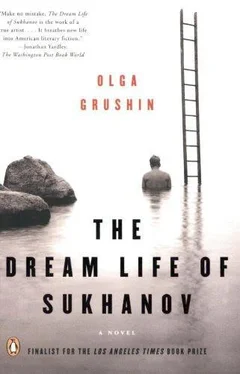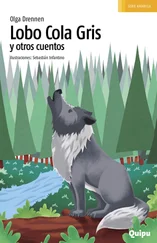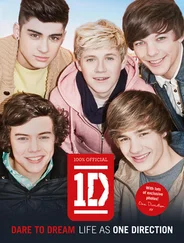Going to be a long one, Sukhanov thought without interest as he applauded.
“Dear comrades, I don’t need to tell you why we have gathered here today,” the Minister began when the place had fallen quiet. “Neither do I need to introduce to you our beloved Pyotr Alekseevich Malinin, one of the greatest artists of our century, two-time laureate of the Lenin Prize, member of the Academy of Arts of the USSR since 1947, the year of its creation, three-time winner of—”
As he spoke, he dipped his gaze repeatedly into a stack of paper. Feigning rapt attention, Sukhanov let himself drift away, basking in a wonderfully warm, mindless feeling of overall well-being. Everything in his life was well arranged, yes, everything was perfect, and most deservedly so—and thus he took it almost as his due when, after the important people had said all the necessary words and while the unimportant people were still holding forth, hopelessly trying to regain the attention of the merrily disintegrating room, the Minister emerged from the swiftly parting crowd and placed his hand on Sukhanov’s shoulder.
“So, Tolya, how are things? Going well, I trust,” he said jovially. “Lucky bastard, married to the most gorgeous woman in Moscow!”
Sukhanov brushed off the sudden distracting thought that the man reminded him of someone, and said something very pleasant and instantly forgettable about the Minister’s wife. The Minister laughed, looked at him slyly, and asked, “You smoke?”
Sukhanov did not smoke.
“Naturally,” he replied without a heartbeat of hesitation.
Leaving a trail of square-jawed youths behind them, the two walked outside, and immediately a cigarette materialized in Sukhanov’s fingers, he knew not how. It was hastily followed by a lit match that originated somewhere in the darkness of the portico and dutifully flew up to his face, illuminating the proffering hand and the infinitely respectful smile of the doorman with the ridiculous mustache. The cringing recognition in the man’s eyes pleased Sukhanov immensely. Cringe, my friend, cringe, he thought as he stood trying not to inhale the smoke, the Minister’s hand still resting on his shoulder. Perhaps next time you will think twice before you bar the entrance to a man on the very best terms with the very best people—a man who is, in fact, the only son-in-law of the hero of the evening—and moreover, a voice inside him added with false modesty, a man who is himself something of a weight in the art world, pun most certainly intended.
For the past twelve years Anatoly Pavlovich Sukhanov had occupied the most influential, most enviable post of editor in chief at the country’s leading art magazine, Art of the World.
The Minister had a funny manner of puffing out his cheeks as he exhaled his smoke.
“Masha was rather taken with your son,” he said after a short, congenial silence. “A very nice young man. What is he doing, I forget?”
“He is at the Foreign Affairs Institute, graduating next spring,” replied Sukhanov proudly. “Their number-one student. Takes to languages like a duck to water.”
“Ah, is that so?” said the Minister, visibly impressed.
Assuredly, assuredly he resembled someone, especially when he blew out his cheeks in that fashion…. Suddenly worried that he was staring, Sukhanov glanced away, across the street—and it was then that he became aware of something distressing. He averted his eyes for an instant, then looked again. There was no mistake, none whatsoever.
“Listen, Tolya,” the Minister was saying in the meantime, “I’m having a bit of a get-together at my dacha this Tuesday, nothing big, just me, Masha, and a few close friends. My daughter will be stopping by as well—a very pretty girl, by the way. So I thought maybe you and Vasily… Is something the matter?”
Sukhanov was craning his neck, staring up and down the quiet street.
“I don’t know,” he said in bewilderment. “My car… it’s not where it’s supposed to be. I told the fellow to wait for us over there.”
“Yes, well, all chauffeurs drink,” the Minister pronounced philosophically. “He’ll turn up before the evening is over, I’m sure. Now, about Tuesday—”
But Sukhanov continued to blink and peer into the dimness.
“There must be some mistake,” he kept muttering. “Volodya’s been with us for a couple of years, and in all this time he’s never… simply can’t think of a reason…”
Taking off his glasses, he rubbed the lenses with the underside of his jacket. Uncovered, his eyes looked indecently naked and lost. The Minister frowned slightly and tossed away his cigarette.
“Well, seeing as you are so preoccupied right now,” he said somewhat coldly, “we’ll continue this conversation another time. So long, Tolya.”
For a few minutes Sukhanov waited by the entrance, still staring, as if trying by sheer act of will to conjure the missing car from the dense shadows of the trees underneath which it rightfully should have been, by all the laws of his universe. Things like this never, almost never, happened to him, and when they did, they tended to upset him tremendously. As he stood there, a light drizzle began to fall, and soon the street was glistening unpleasantly. He turned to go inside, and the doorman leapt to throw the door open before him, but this time Sukhanov thought he saw the hint of a mocking smile on the man’s mustachioed lips. Immediately he told himself it was only his imagination, but it nonetheless triggered a surge of sudden fear in him, as if some irreparable damage had been done—as if, in the very moment of his disturbing discovery, the Minister had begun to say something important, something absolutely vital, perhaps, and he, engrossed as he had been in his confusion, had missed it, missed it unforgivably, missed it forever…
But try as he might, the substance of the Minister’s words escaped him, and the nagging little idea of the man’s resemblance to someone kept getting mixed up with his thoughts and leading him astray, until, gradually, his panic abated. Even if there had been some unwanted rudeness on his part—and he was positive, almost positive there had been none—he would smooth it over later; right now he had a problem to resolve. If that fellow had really left to have a drink, they would fire him on the spot, he decided indignantly, and dodging conversations, set out to find Nina.
She had quit her father’s side when the speeches had started, but Pyotr Alekseevich, to whom Sukhanov now paid hurried respects, said he had seen her only recently talking to Ksenya. Growing restless, Sukhanov dove into the crowd once again. A few paces away, a young girl with a boy’s haircut blocked his way.
“Good evening, Anatoly Pavlovich,” she said solemnly. Her voice was high and thin, almost childlike. “My name is Lina Gordon, I’m a journalist. I’m writing an article on the Malinin retrospective. Could you answer a couple of questions for me, please? As the editor of Art of the World, I’m sure you’ll provide invaluable insight to my readers.”
He looked at her incredulously. Her skinny neck stuck out of an absurdly cheap yellow dress, and her lips were pale and chapped. She was clutching an open pad.
“What… er… what newspaper did you say you were with?” he asked with an involuntary smile.
“I’m working for a Moscow State University magazine,” she replied evenly, uncapping her pen. “So, do you like Malinin’s paintings, Anatoly Pavlovich? Do you think they are good art?”
As he continued to study her, his amusement increased. Her raspberry-colored nail polish was peeling. She probably bit her nails, she was just the type.
“Ah, a university magazine,” he said. “Naturally, you must mean a student publication. If you don’t mind me asking, how old are you? Eighteen? Seventeen?”
Читать дальше








![Theresa Cheung - The Dream Dictionary from A to Z [Revised edition] - The Ultimate A–Z to Interpret the Secrets of Your Dreams](/books/692092/theresa-cheung-the-dream-dictionary-from-a-to-z-r-thumb.webp)



